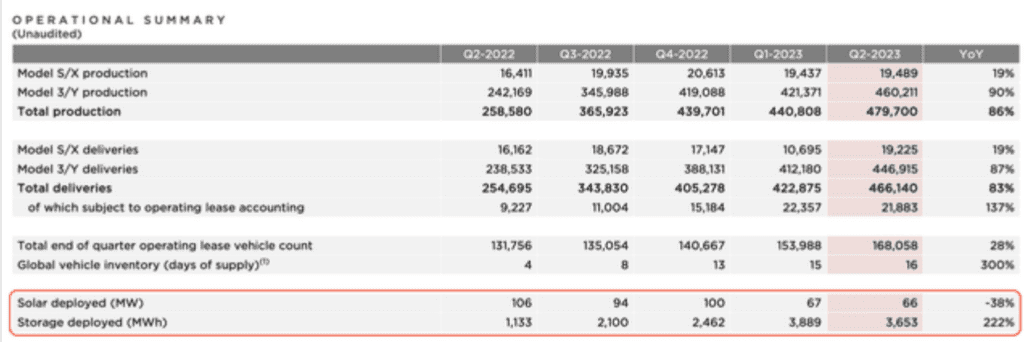As the shift towards sustainable energy accelerates, more homeowners are exploring solar power as a viable option for reducing their electricity bills and minimizing their environmental footprint. Among the leading contenders in the solar industry are SunPower and Tesla, each offering distinct advantages and features. This comprehensive comparison will delve into the essential factors homeowners should consider when choosing between these two prominent solar power solutions.
Service Area: Coverage Across the Nation
When selecting a solar provider, it’s crucial to ensure that their services extend to your location. Both SunPower and Tesla boast an extensive service area, encompassing all 50 states and Washington, D.C. This broad geographic coverage positions them as viable options for homeowners nationwide, making it easier for customers across the country to benefit from their solar solutions.
Panel Efficiency and Performance: Maximizing Energy Output
Solar panel efficiency is a critical determinant of how effectively a solar system converts sunlight into usable electricity. SunPower is renowned for its exceptional panel efficiency, offering models with an impressive efficiency rating of up to 22.8 percent. This high efficiency translates to greater energy production and reduced reliance on grid electricity.
In contrast, Tesla does not disclose specific efficiency ratings for its solar panels. However, Tesla asserts that its panels are designed to deliver maximum solar production throughout the year, leveraging advanced technology to ensure consistent performance. While Tesla’s panels may not match SunPower’s efficiency rating on paper, the company’s emphasis on cutting-edge technology and performance is notable.
Additional Products and Services: Comprehensive Solutions
Both SunPower and Tesla offer a variety of additional products and services that complement their solar panel installations.
- SunPower provides an array of supplementary products including solar batteries, which store excess energy for later use, electric vehicle (EV) chargers, and system monitoring tools. These additions enhance the functionality and convenience of a solar energy system.
- Tesla goes a step further with its solar roof tiles, an innovative alternative to traditional solar panels. Tesla’s solar roof integrates glass solar tiles and steel roofing tiles, offering both durability and aesthetic appeal. Beyond solar installations, Tesla also supplies electric vehicles and facilitates energy monitoring through the Tesla app, allowing homeowners to track their energy usage and vehicle performance.
Cost and Financing Options: Navigating Financial Considerations
The financial aspect of solar panel installation is a significant factor for many homeowners. While SunPower and Tesla do not publicly list their prices, there are notable differences in their financing options:
- SunPower offers a range of flexible financing solutions, including purchasing, leasing, and power purchase agreements (PPAs). These options provide homeowners with various ways to manage the cost of solar installation, depending on their financial situation and preferences.
- Tesla primarily provides options for outright purchases or loans, with a focus on competitive pricing supported by a price-match guarantee. This commitment to affordability reflects Tesla’s competitive stance in the market.
Homeowners should carefully compare these financing options to determine which best aligns with their budget and long-term financial goals.
Warranties: Ensuring Long-Term Peace of Mind
A robust warranty is essential for protecting your investment in solar technology. Both SunPower and Tesla offer 25-year warranties on power production. However, there are differences in the scope of these warranties:
- SunPower guarantees that its panels will maintain at least 92 percent of their initial energy production capacity over 25 years. This warranty also extends to product and workmanship, providing comprehensive coverage for both the panels and the installation process.
- Tesla’s warranty, while also covering power production for 25 years, guarantees an 80 percent retention of initial energy production. Tesla’s warranty primarily focuses on power production, with less emphasis on product and workmanship coverage compared to SunPower.
Customer Reviews: Assessing User Experiences
Customer feedback can provide valuable insights into the quality of service and overall satisfaction with a solar provider. While reviews should be considered cautiously, they can reveal patterns in customer experiences:
- SunPower generally receives positive reviews, with many customers highlighting the company’s exceptional customer service and the effectiveness of its solar solutions. Positive feedback often centers on the professionalism of SunPower’s representatives and the smooth installation process.
- Tesla also has a strong presence in customer reviews, with users appreciating the innovative design of Tesla’s solar roof tiles and the integration with Tesla’s broader ecosystem. However, some reviews point to challenges with customer service and installation timelines.
Conclusion: Making an Informed Decision
Both SunPower and Tesla represent leading choices in the solar power industry, each offering unique strengths and benefits. SunPower excels with its high-efficiency panels, comprehensive warranty, and strong customer service reputation. On the other hand, Tesla stands out with its sleek solar roof tiles, competitive pricing, and integrated energy solutions.
The choice between SunPower and Tesla ultimately hinges on individual preferences, needs, and budget considerations. By thoroughly evaluating the factors outlined in this comparison, homeowners can make an informed decision that aligns with their solar energy goals and maximizes the benefits of their investment.




